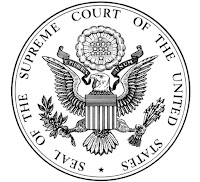Free State Foundation President Randolph May issued the following statement regarding the Court of Appeals for the Eleventh Circuit's opinion today vacating a forfeiture penalty of $518,283 assessed against Gray Television, Inc:
The Free State Foundation filed an amicus brief in Gray Television's appeal of its forfeiture because of certain concerns relating the FCC's rationale for imposing the forfeiture, including whether Gray's due process rights had been violated for lack of fair notice regarding whether Gray's conduct actually violated the Commission's rules as they had been interpreted. While the court did not address the specific points FCC raised, it did hold that the entire
forfeiture should be vacated because the Commission failed to provide fair notice and acted arbitrarily and capriciously in failing to explain the basis for its Notice of Apparent Liability (NAL).
The FCC's enforcement regime has been plagued by problematic examples of overreach and abuse in the past, which is a major reason why FSF participated as an amicus in the Gray appeal. Before the agency is allowed to impose massive penalties, it's required as a matter of due process that parties regulated by the agency have fair notice of what's expected of them to comply with Commission rules. Conservatives and rule-of-law advocates have always been rightly concerned by "regulation by enforcement" – that is using an enforcement regime to establish new heretofore unknowable regulatory requirements.
The FCC's recent imposition of a massive forfeiture on Telnyx, and others, may well fall into this category, raising similar due process and fair notice concerns regarding whether the conduct alleged to be violative of the agency’s rules was known or knowable.






